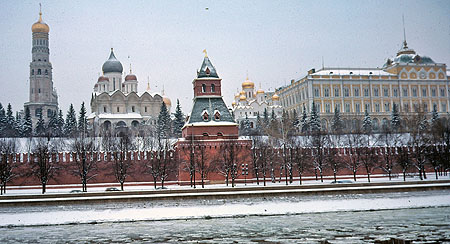![]()
What you must do in this unit
- Review chapter 31, which you have already read for unit 15.
- One of the threads running through these last few units of the course is the process of globalization (my notes) and the spectacular advances of technology of the modern world (my incomplete notes).
- Read my notes on the East Asian Economic Modernization.
- Watch the new short concluding video by Professor Evans.
- Check out Professor Campbell's video, Was The End Of The Cold War B.S.?
- Read Jared Diamond's "Yali's Question." (Log into Canvas and look for the excerpt under "Course Documents."
- Study the Questions to Consider and the Key Terms for the unit.
SUBMIT
- Submit the required Reflective paragraph (20 points).
- Post in the discussion board a comment on what you found most interesting about your study of history in HIS 112 and include a suggestion for improving the course. Suggestions are very valuable as we are always making revisions to the course (5 points).
What you can do in this unit
- Read my very short notes on the future watch my old short concluding video.
- Check out my quick video on some suggested history books that you might want to read.
- Trade War: Britain Acquires a Barren Rock gives a short explanation of the Opium Wars in China and how Britain acquired Hong Kong
- Jaylynne West, Robert laird, Maahum Malik and Mauricio Martinez created this excellent timeline on the emergence of South Korea as an Asian Tiger.
- Conor Ginnell (Fall 2017) created this great Tumblr exhibit on Twentieth Century Fantasy.
- Watch Why Is History Important? (National World War I Museum and Memorial).
Some videos that you can watch for this unit
- Globalization II - Good or Bad?: Crash Course World History #42
- Globalization I, The Upside: Crash Course World History #41
- Documentary: What Is the Fourth Industrial Revolution?
- It's not really a video, but Civilisations is a kind of interactive timeline of world empires.
- Boxer Rebellion 3 Minute History
- The Amazing Life and Strange Death of Captain Cook: Crash Course World History #27
- For extra credit please suggest to your instructor a relevant video for this unit of the course. Send the title of the video, the URL and a brief explanation of why you find the video interesting and applicable to the material that is being studied in this unit.
Extra Credit Options
- For up to 10 points of extra credit, write a short paragraph in which you explain why you think it is important to study history (check these two links for more information, Historians and Why we study history).
- For up to 10 points of extra credit, choose one of the famous quotes about the study of history--scroll down that page to find a list of quotes--(Get permission from your instructor first.) and write a long paragraph in which you explain who the author of the quote was, what he/she meant by the quote and then your evaluation of the quote's accuracy. You can also use the material on these two links, Historians and Why We Study History. Don't forget to cite your sources.
Unit Learning Objectives
- Upon successful completion of this unit and with the completion of your reflective paragraph, you will have demonstrated your mastery of the course goals and objectives in the course, which are
- Establish a chronology of historical events in the world since 1600 CE.
- Explain the changing geopolitical structures of world civilizations up until 1600 CE.
- Define the importance of key individuals and developments in world civilizations since 1600 CE.
- Identify the social, economic and political forces at work in the evolution of the world’s modern civilizations.
- Recognize and describe the significance of some of the cultural achievements of world civilizations since 1600 CE.
- Analyze complex historical sources and materials and reach conclusions based on interpretations of those materials.
